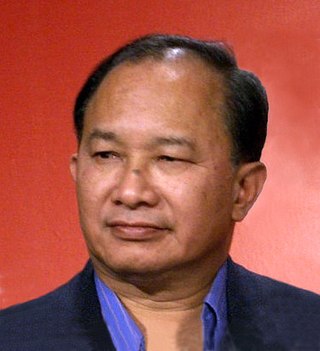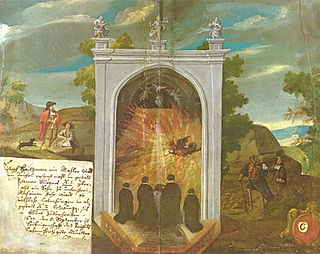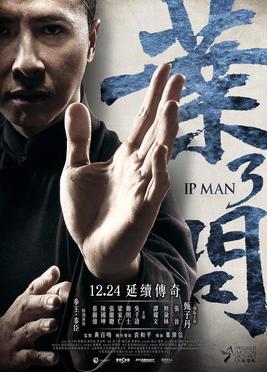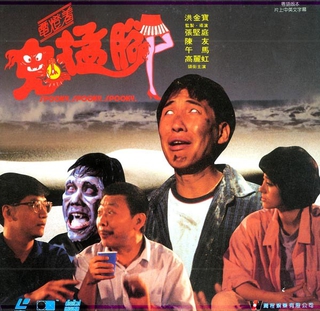
John Woo Yu-sen is a Hong Kong film director known as a highly influential figure in the action film genre. The recipient of various accolades, including a Hong Kong Film Award for Best Picture, Best Director, and Best Editing, as well as a Golden Horse Award, an Asia Pacific Screen Award and a Saturn Award, he is regarded as a pioneer of heroic bloodshed films and the gun fu genre in Hong Kong action cinema. He is known for his highly chaotic "bullet ballet" action sequences, stylized imagery, Mexican standoffs, frequent use of slow motion and allusions to wuxia, film noir and Western cinema.
Hong Kong action cinema is the principal source of the Hong Kong film industry's global fame. Action films from Hong Kong have roots in Chinese and Hong Kong cultures including Chinese opera, storytelling and aesthetic traditions, which Hong Kong filmmakers combined with elements from Hollywood and Japanese cinema along with new action choreography and filmmaking techniques, to create a culturally distinctive form that went on to have wide transcultural appeal. In turn, Hollywood action films have been heavily influenced by Hong Kong genre conventions, from the 1970s onwards.

Heroes Shed No Tears is a 1984 Hong Kong action war film directed by John Woo, who also wrote with Chiu Leung-chun and Peter Chan, who also produced. The film stars Eddy Ko, with a supporting cast of Lam Ching-ying, Ma Ying-chun, Philippe Loffredo, and Cécile Le Bailly. Filmed prior to the success of Woo's A Better Tomorrow, the film is a story about a group of mercenaries on a mission to extract a drug lord from the Indochina area.
Danny Lee is a Hong Kong actor, film producer, screenwriter, director, action director and presenter. He is known for frequently portraying Hong Kong police officers in films such as Law with Two Phases, The Killer and The Untold Story, as well as being a Shaw Brothers alumnus, having starred in martial arts and action movies produced by that studio such as Infra-Man.

Wheels on Meals is a 1984 Hong Kong martial arts action comedy film written and directed by Sammo Hung, with action choreographed by Jackie Chan. The film stars Jackie Chan, Sammo Hung, Yuen Biao, Lola Forner, Benny Urquidez and José Sancho. The film was shot in Barcelona, Spain.
Kung fu film is a subgenre of martial arts films and Hong Kong action cinema set in the contemporary period and featuring realistic martial arts. It lacks the fantasy elements seen in wuxia, a related martial arts genre that uses historical settings based on ancient China. Swordplay is also less common in kung-fu films than in wuxia and fighting is done through unarmed combat.

Terence Chang Chia-Chen is a Hong Kong and American film producer.

The idea of making a deal with the devil has appeared many times in works of popular culture. These pacts with the Devil can be found in many genres, including: books, music, comics, theater, movies, TV shows and games. When it comes to making a contract with the Devil, they all share the same prevailing desire, a mortal wants some worldly good for their own selfish gain, but in exchange, they must give up their soul for eternity.

Ip Man 3 is a 2015 Hong Kong biographical martial arts film directed by Wilson Yip, produced by Raymond Wong and written by Edmond Wong with action choreography by Yuen Woo-ping. It is the third film in the Ip Man film series based on the life of the Wing Chun grandmaster Ip Man and features Donnie Yen reprising the title role. Ip Man's pupil Bruce Lee is portrayed by Danny Chan and Ip Man's fellow Wing Chun expert and rival Cheung Tin-chi (張天志), also known as Sum Nung, is portrayed by Zhang Jin. The film also features Mike Tyson. Principal photography commenced in March 2015 and ended in June of that year.
Seasonal Film Corporation was an independent film company from Hong Kong, originally founded by the ex-assistant Shaw Brothers movie director Ng See-yuen in 1974. One of their first films was Call Me Dragon in 1974, starring Bruce Liang, Kurata Yasuaki and Mang Hoi. Seasonal Film Corporation was one of the well known independent filming company in Hong Kong and who was also responsible with likes of martial arts stars such as Jackie Chan, Hwang Jang-lee, Jean-Claude Van Damme, Yuen Woo Ping, Bruce Liang, Alan Chui Chung-San and Corey Yuen.[John Liu Chungliang],[Don Wang Tao]Conan Lee,Hiroyuki Sanada.

Spooky, Spooky, also known as The Haunted Island and Spooky, Spooky, Spooky, is a 1988 Hong Kong comedy horror film directed and produced by Sammo Hung. The executive producer was Leonard Ho. The film was released theatrically on 19 October 1988.

The Buddhist Spell is a 1993 Taiwanese fantasy film directed by Chao Lu-chiang and starring Sharla Cheung.

The Close Encounter of the Vampire, also known as The Close Encounters of Vampire, Dragon vs. Vampire, or Dragon Against Vampire, is a 1986 Cantonese-language Hong Kong comedy horror film directed by Lau Kar-leung. It is a jiangshi film based on Chinese folklore.

The Spiritual Boxer Part II, also known as The Shadow Boxing, is a 1979 Mandarin-language Hong Kong martial arts comedy film directed by Lau Kar-leung. It is the thematic sequel to his debut film The Spiritual Boxer (1975). Several of the actors from the first film return, albeit in different roles. The film is notable for being an early jiangshi film based on Chinese folklore, predating both Encounters of the Spooky Kind (1980) and Mr. Vampire (1985).

The Young Dragons is a 1974 Mandarin-language Hong Kong action film directed by John Woo. It is John Woo's feature-length directorial debut and his second collaboration with Jackie Chan, who acted as martial arts choreographer.

Princess Chang Ping is a 1976 Hong Kong Cantonese opera film directed John Woo. It is a remake of director Wong Tin-lam's 1959 film Tragedy of the Emperor's Daughter, itself based on the Cantonese opera Di Nü Hua. Tang Disheng, one of the co-writers of the 1959 film, retains a story credit for the 1976 remake.

Money Crazy, also known as The Pilferer's Progress or Hired Guns, is a 1977 Hong Kong action comedy film directed by John Woo.

Hello, Late Homecomers, also known as Moonlighters or Hello! 夜歸人, is a 1978 Cantonese-language Hong Kong anthology comedy film with segments directed by Lau Tin-chi, Louis Sit and John Woo.

Plain Jane to the Rescue is a 1982 Cantonese-language Hong Kong comedy film directed by John Woo. It is the third in the series of Plain Jane films starring Josephine Siao based on the same character she played in a popular TV series.

The Time You Need a Friend is a 1985 Cantonese-language Hong Kong-Taiwanese comedy-drama film directed by John Woo.
















